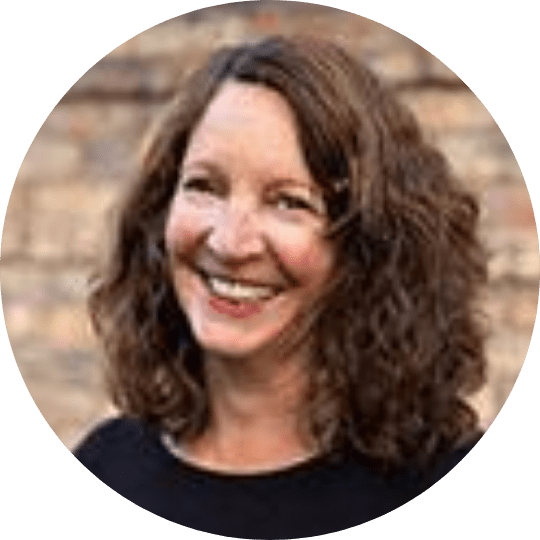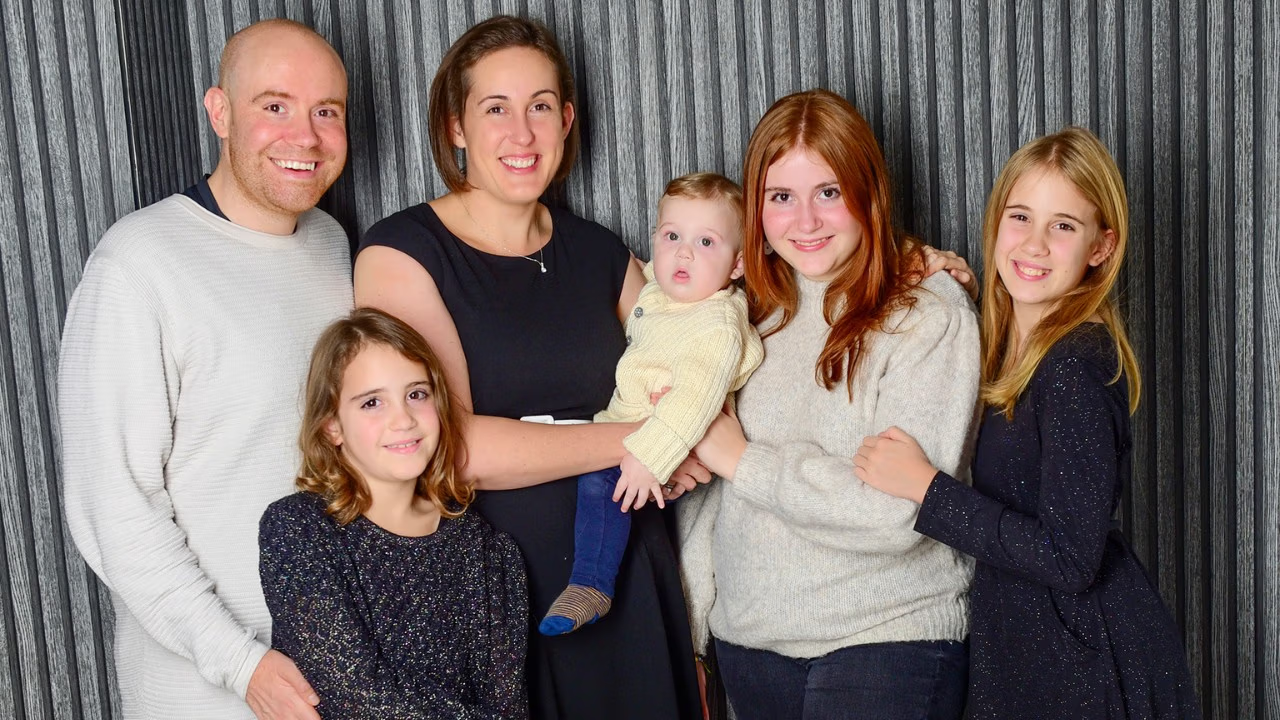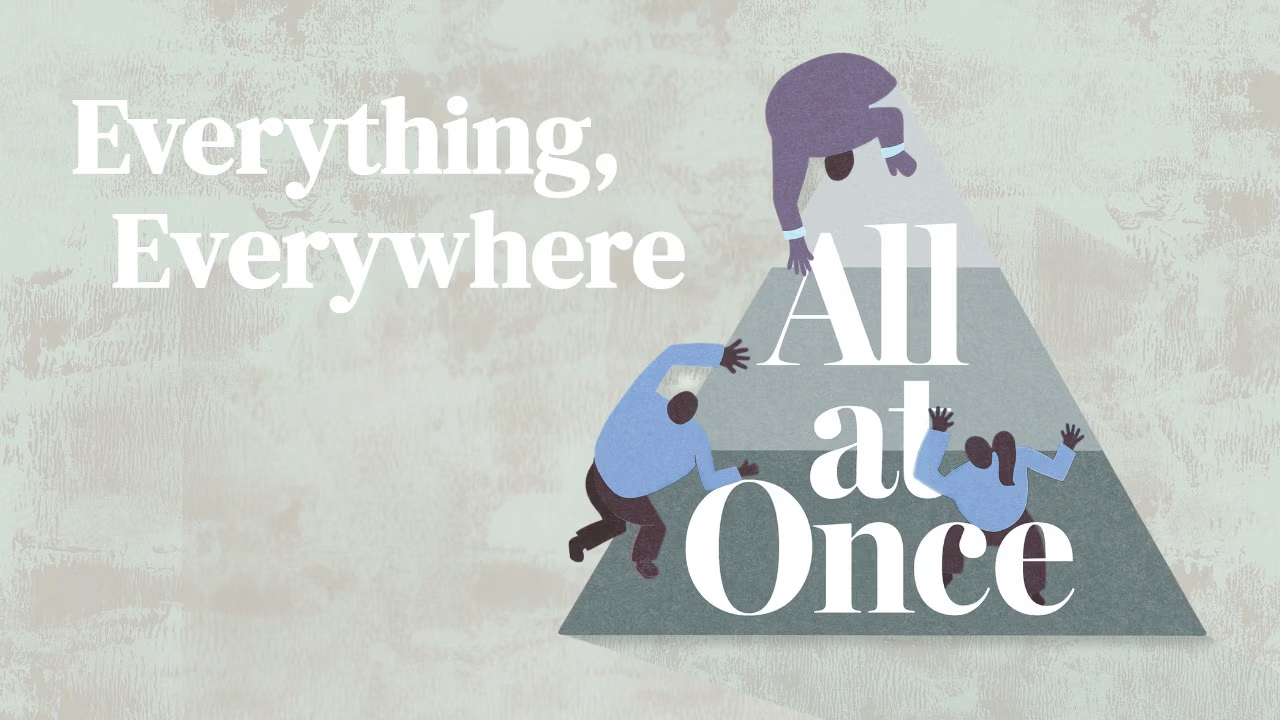Grace Shim has been nominated to become the next executive minister of Serve Globally. She will stand for election at the Annual Meeting in June. A therapist, she began serving as global personnel with the Covenant in 2003 and now serves as regional coordinator of Asia for Serve Globally.
Can you tell us about your journey into the Covenant?
My first introduction to the Covenant was through being part of a church plant team in the Chicago area. Several of us, including Covenanters like Greg Yee and Peter Cha, gathered to start a church with a vision to reach previously churched Asian Americans. So Parkwood Community Church was started in 1995.
We knew it was important to find a denomination. We wanted one that affirmed women in ministry and would also be open to an Asian American church. In that search, we eventually came across the Covenant. I think we were one of the first Asian American churches to join the Covenant. This was during the 1990s—the church actually joined the denomination in 1997. Because we were all connected with other Asian American leaders and pastors, it opened the door for many other churches like ours to join.
My husband, Bob, and I wanted to serve overseas, so we were considering who we wanted to do that with. I had a conversation with Dr. Paul Hiebert, a renowned missiologist and professor at Trinity where I was doing my counseling degree, and asked him, “What would you recommend—denominational missions or a mission agency?” He said, “Go with denominational mission, because denominations tend to have longevity in the countries where they serve.”
So we decided to go with Covenant World Mission (now Serve Globally). Bob is a medical doctor, and I had completed my training by that point. We left with our three children in 2003 for Kyrgyzstan as project missionaries.
We came into the Covenant, first through Parkwood and then as global personnel. It’s been an incredible and supportive home for us.
Can you tell us about your own call to ministry?
In some ways, ministry has been part of my life since I was a child. I grew up hearing about my paternal grandmother’s faith. She sent my father and his older siblings from the north to the south during the Korean War. She taught my dad to persevere amid the Japanese occupation and cultivated a faith in God’s care that was part of my upbringing. My father is a pastor, and growing up in that context significantly shaped me.
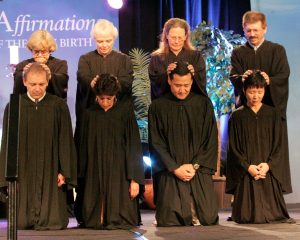
Honestly, I never anticipated being in full-time ministry, perhaps because it was so much a part of my early life. But I found myself involved at every stage of life, whether leading a campus fellowship in college or leading small groups as a young adult. I can still remember trying to lead worship at Parkwood on the guitar being eight months pregnant!
Regarding a “formal” call into full-time ministry, that was really through meeting and marrying Bob. He had had a sense of call to missions since he was a child. When we met, I knew that saying yes to him would mean saying yes to full-time missions. So I had to seriously consider if I was open to this as I was certainly open to him! Looking back, ministry has been a series of responses to God at each crossroad, wrestling with whether to say yes or no. Each time we’ve said yes—even if it’s a reluctant yes—it’s been surprising to see the new places God takes us.
Could you say more about that “reluctant yes”? What does that look like for you?
It seems I initially respond to God’s invitation with a reluctant yes. It’s never been, “Oh yes, God, absolutely.” It’s always been a wrestling, and the wrestling has come probably because of the inner struggle of asking, “Am I enough?” Or feeling like the invitation is bigger than what I can offer. That’s why the five loaves and two fish remind me that I can only give what I have. As I step across the threshold, God equips and enables.
Sometimes I wish I had the faith to jump out of the boat and say, “Yes, Jesus, I’ll come to you on the water.” But it’s always the adjustment of my eyes being so focused on the water and then turning my gaze to the hand extended saying, “Come.” That’s always a process from reluctance to confidence, not in myself but in Jesus’s ability to work through me.
As you have served in global ministry, what have you learned about the church?
My view of the church has greatly expanded while we were serving overseas and then even more in my role as regional coordinator. I grew up in the U.S. church context and believed we were the center of the gospel going out to the world.
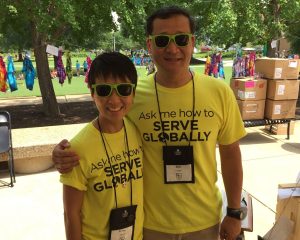
When our family first moved to Kyrgyzstan, Bob and I naively (and embarrassingly!) thought we were there “to save the Kyrgyz people.” Instead, God allowed us to experience our brokenness, and we discovered we had much to learn from others. Our brothers and sisters have taught us about courageous faith, generosity, and the holistic gospel. The body of Christ is so diverse in its expression in each culture.
As we have lived overseas, Acts 1:8 has taken on new meaning for me: “You will receive power when the Holy Spirit has come upon you; and you will be my witnesses in Jerusalem, in all Judea and Samaria, and to the ends of the earth.”
I better understand that how the church defines that center, or our Jerusalem, is very important. If I’m living in the U.S., to me, the uttermost parts of the earth might be Asia or Africa. But when I’m living in Asia, actually the U.S. is the ends of the earth. When you think about the church in every part of the world going forth from their defined center, there’s an intersection that happens of the global church. That intersection is a ripe place for mutual learning, support, and collaboration if we take the opportunity.
What has been your experience as a woman serving in ministry?
As I consider that question, I realize it’s difficult for me to separate my ethnicity as an Asian American from being a woman, because each aspect of my identity influences the other. When people see me, do they see me as woman first or an Asian first?
For me, it’s meant battling internal struggles of feeling less-than, especially in majority culture, male leadership culture, church culture. Some of those inner self-doubts are born out of earlier painful life experiences as an Asian and being a woman. The Covenant has been a place of working out and healing some of those struggles for me.
In counseling, we as therapists talk about how those around us can provide what we call “corrective emotional experiences.” In other words, when others engage with you in a way that is different from what you’ve negatively experienced, then healing happens and you begin to experience yourself in a way that is more true to who you are. Along the way, there has been a series of corrective emotional experiences for me as an Asian American woman in ministry. I’m thankful for the different men and women, not only within the Western context but globally, who have been that for me. They’ve noticed gifts in me and called them forth. They’ve also been the people who have seen my weaknesses, and that did not deter them from seeing my strengths.
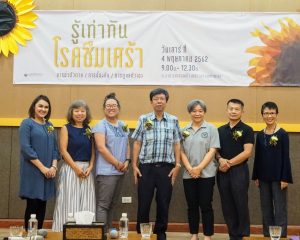
Courageous women have pioneered and persevered through painful obstacles, opening a path before me and other women. I’m indebted to them. And there were men who intentionally pulled me aside to encourage me. That has been very healing. I know I am not a woman in ministry out of my own doing. I carry with me all those people who have loved me well and encouraged me and challenged me. I’ve started using a phrase that reminds me of this: “I can because of the ‘we’ in me.”
What word do you sense God speaking to the Covenant right now?
One of my favorite passages is Isaiah 61, where Isaiah says, “The Lord has anointed me to proclaim good news” (v. 1). In the following verses, he talks about that good news as binding up the brokenhearted, comforting those who mourn, releasing prisoners from darkness. The good news is defined as being healing agents in the places where you are, wherever God has placed you. That is also the gospel going out into the world.
When I think about the Covenant in the context of what’s happening systemically, politically, and socioeconomically in the U.S., as well as around the world, I think my word for the Covenant is to remind ourselves that the gospel brings healing. Coming out of these last couple years, we are feeling the brokenness of our bodies and spirits and a longing to be more whole. How do we receive the shalom Jesus offers as the anointed One? And then how do we as his anointed ones offer this to those around us? Isaiah calls us to bind, comfort, release, set free, and rebuild within ourselves and into the world. Take a moment to listen instead of speak, be curious instead of assume, repair instead of rupture. Wow, if our church was committed to this, I believe we would more genuinely be followers of Jesus. This is part of what is means to “go into the world.”
The last verse of that chapter says that as we do that, the Lord’s righteousness will spring up before all nations. What a beautiful picture of the gospel’s impact.
What else should delegates know about you?
It’s important to know that Bob took a step of faith to join the U.S. State Department in 2020 as a regional medical officer, seeking to be light and salt in the foreign service. It’s been neat to see this new position being a culmination of experiences and gifts he has cultivated over the years of being part of Serve Globally. So I’m not only part of the Covenant, but we’re also part of the diplomatic community, which we’ve really enjoyed. Bob will be posted in Islamabad this fall for one year. It’s an unaccompanied post, so I plan to live and work from Korea.
The other thing I would want people to know is that Bob has been the one who has really encouraged me to take this position, knowing the impact and cost that may come with it. His belief in me and support has pushed me to be open to this opportunity.
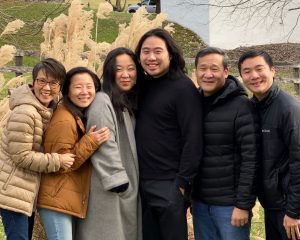
We have three really wonderful adult children and one son-in-law. Our kids have taught Bob and me a lot about God’s grace and faithfulness in the ups and downs of serving overseas. We are really proud of who they are and who they’re becoming
Also, I’m a licensed therapist and have been serving with Cornerstone Counseling in Chiang Mai, Thailand, providing mental health care for missionaries around the world. My counseling experience greatly informs how I approach mission and the gospel’s healing in the world. In Serve Globally, we often refer to our mission being about “the whole gospel to the whole world,” and there’s another part to that—“The whole gospel to the whole world through whole persons.” That language about whole persons resonates. That’s what opened my heart to take on this position, thinking about what mission looks like when we think about it through the lens of cultivating whole persons through the gospel.
Living several time zones away from many of your colleagues, how do you anticipate navigating those logistics?
It helps that this role already involves a significant amount of international travel, so there is already an understanding and experience of this from the staff. I plan to have a home base in Chicago and in Korea, traveling back and forth as needed. Thankfully, the pandemic has created a culture of working effectively from remote locations, which I’ve already been doing the last two years as the Asia regional coordinator. It’s really important to me to prioritize communication and connection with the SG and leadership teams, so I will need to adjust my schedule when I’m not in the U.S.
I actually see how living outside of the U.S., living cross-culturally, is central to the way I see and experience the world and see God at work around me. There’s something about walking out my front door and immediately engaging people and language and culture that is so different from mine. I think it’s to my advantage to be in a cross-cultural context, especially if I lead Serve Globally, because it has and will inform the way I lead and my understanding of what those I lead also experience.
Bob and I recognize that it will also be challenging to figure out which rhythms are going to be healthy and still maintain self-care and healthy relationships in marriage and with our kids. We both prayerfully considered this as part of our discernment about being open to this position. But we’re both willing to adapt and adjust as needed as we sense this is God’s call for us at this time.
Can you tell us a little about your co-regional coordinators in Asia, Tip and Patrick Boonrang?
Patrick and Tip have partnered with us in Thailand for the last 12 years, first as translators for short-term teams and later as co-leaders. I think they’ve accompanied Bob on more than 50 teams! Our current model for Asia regional coordinators is a pilot we’re trying as we all wanted to see what it would be like to have national leaders in this position. They are incredibly gifted Thai leaders who bring much wisdom and perspective into a cross-cultural context. It was a signifcant step of faith for them to step in with me to provide support and care for our global personnel and partners in Asia.
If I’m elected, this transition will be another big step of faith for them too. We’re going through parallel processes in terms of the transition. They have also committed to this role and are willing to learn as we go forward. Discussion is still needed on how to best support and resource them, and we’re trusting God to lead and provide. I’m thankful they are willing to continue in this position as we’ve already seen the value of having national leaders speak into how we approach mission in the world.
Finally, can you tell us what books are on your nightstand?
Between my Kindle and actual books, I am reading a number of titles. The devotional I use is The Blue Book, by Jim Branch. I go to that often.
I’m also reading the novel Pachinko, by Min Jin Lee, which has been interesting to read being Korean and my parents being from North and South Korea. I’m also reading Atlas of the Heart, by Brené Brown, which speaks to the importance of knowing our emotions; Atomic Habits: An Easy and Proven Way to Build Good Habits and Break Bad Ones, by James Clear; and Subversive Witness, by Dominique Gilliard. The last one is for my therapy—The Practice of Emotionally Focused Couples Therapy, by Sue Johnson, because I primarily do work with couples and find this approach to be very effective.



